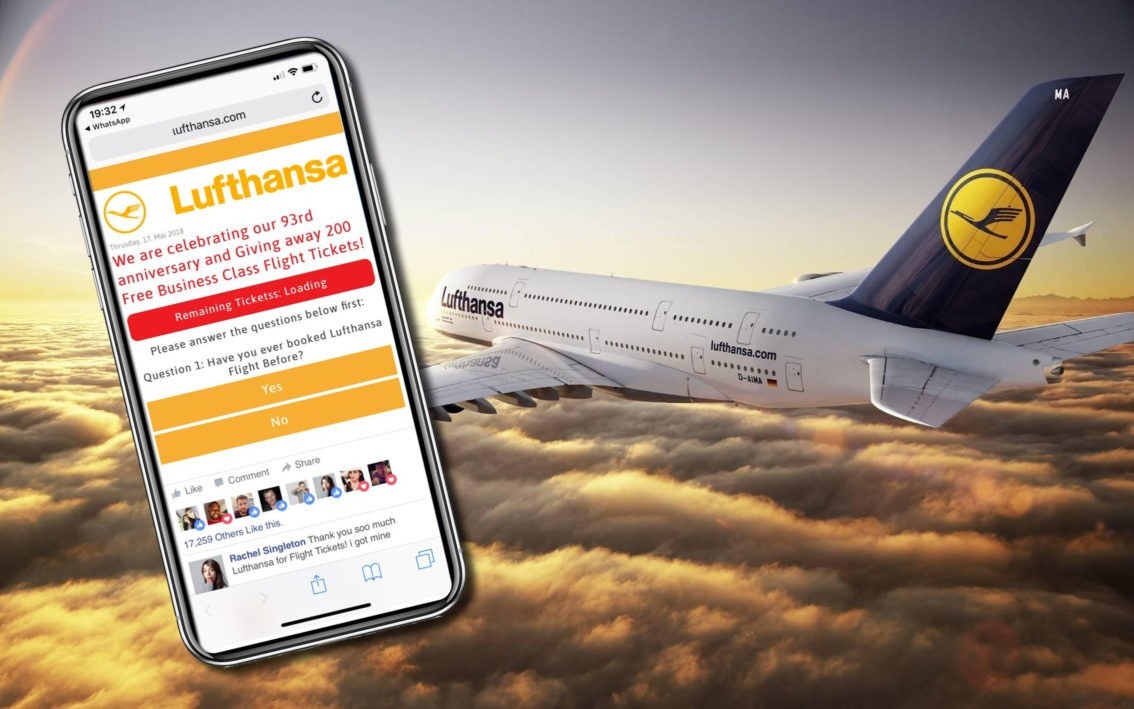And for good reason. When I click the link, I see that it opens a look-alike Lufthansa website, which prompts you to answer 3 simple questions, such as “Have you reserved with Lufthansa in the past? », and instructs you to share and like the promotion on Facebook in order to win.
